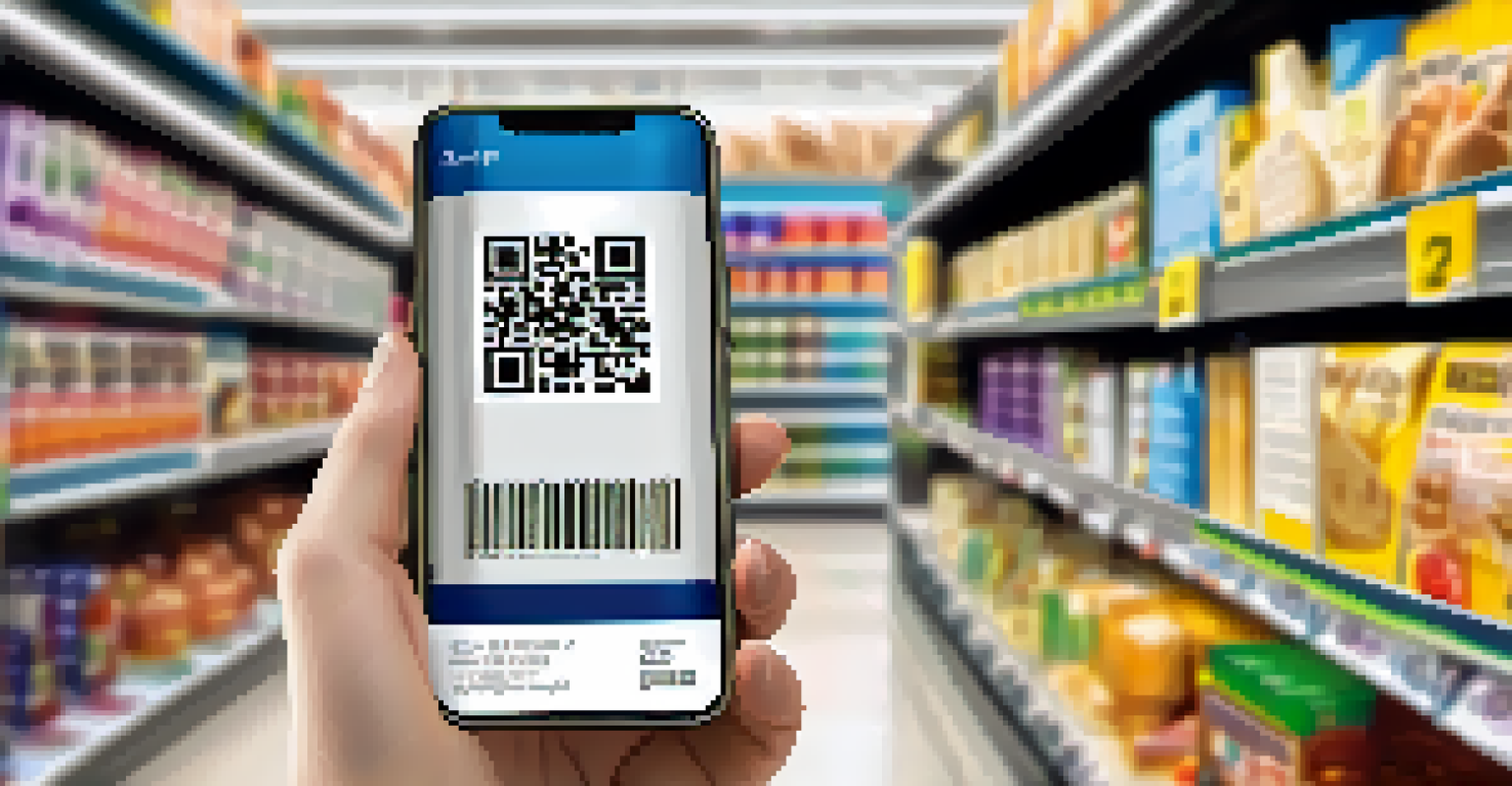Blockchain for Supply Chain: Securing Transparency and Trust

Understanding Blockchain: A Brief Overview
Blockchain is a decentralized digital ledger technology that records transactions across multiple computers. Each transaction is stored in a block and linked to the previous one, creating a chain of blocks that is secure and tamper-proof. This technology ensures that once data is recorded, it cannot be altered or deleted, making it ideal for applications where trust and transparency are vital.
Blockchain is the technology that can bring a new level of transparency and efficiency to supply chains.
Imagine a public library where everyone can see the same book, and every time someone checks it out, a new note is added to the book’s history. This is similar to how blockchain works; everyone has access to the same information, and changes are recorded in a way that everyone can verify. Consequently, this transparency fosters trust among all parties involved.
In the context of supply chains, blockchain can revolutionize how products are tracked and verified. By providing a single source of truth for all transactions, stakeholders can easily trace the journey of a product from origin to consumer, enhancing accountability and reducing fraud.
The Role of Transparency in Supply Chains
Transparency in supply chains means that all parties involved have access to the same data regarding the movement and handling of goods. This visibility helps to minimize risks related to quality, safety, and compliance. When suppliers, manufacturers, and retailers can see the same information, they are more likely to collaborate effectively and address issues proactively.

Think of it like a cooking recipe where everyone can see the ingredients and steps involved. If one ingredient is substituted or omitted, everyone can adjust accordingly to ensure the final dish is still delicious. In supply chains, such transparency allows for swift responses to potential problems, like a recall due to safety concerns.
Blockchain Ensures Trust and Transparency
By providing an immutable and accessible record of transactions, blockchain fosters trust among supply chain stakeholders.
By leveraging blockchain, companies can provide consumers with detailed information about the products they purchase. This not only builds trust but also empowers customers to make informed decisions based on product origins and ethical practices.
Building Trust Through Immutable Records
One of the most compelling features of blockchain technology is its immutability. Once a transaction is recorded on the blockchain, it cannot be altered without the consensus of all parties involved. This characteristic is crucial for building trust in supply chains, as it ensures that all parties can rely on the accuracy of the data.
The future of commerce is about transparency and trust, and blockchain is the key to achieving that.
Imagine a group of friends agreeing to keep a journal of their shared adventures. If one friend tries to change an entry to make it look like they did something they didn’t, the others can easily point to the original journal entry. Similarly, blockchain provides an unchangeable record that protects against tampering and fraud.
As a result, stakeholders in a supply chain can confidently rely on the data provided by blockchain systems. This trust leads to stronger partnerships and smoother transactions, ultimately benefiting consumers through higher quality and safer products.
Enhancing Traceability with Blockchain
Traceability refers to the ability to track the journey of a product through every step of its supply chain. Blockchain enhances traceability by providing a real-time view of every transaction and movement of goods. This capability is particularly important for industries like food and pharmaceuticals, where safety and compliance are paramount.
Imagine trying to trace the origin of your favorite dish at a restaurant. If the ingredients are sourced from various locations, knowing where each came from can ensure their freshness and safety. Blockchain allows companies to provide precise details about a product's journey, giving consumers peace of mind.
Enhanced Traceability for Safety
Blockchain technology significantly improves traceability, allowing consumers to track products' journeys and ensuring safety in industries like food and pharmaceuticals.
With enhanced traceability, companies can quickly identify the source of any issues, such as contamination or defects. This swift response capability not only protects consumers but also minimizes financial losses for businesses, showcasing the practical benefits of blockchain in supply chains.
Smart Contracts: Automating Supply Chain Processes
Smart contracts are self-executing contracts with the terms directly written into code on the blockchain. They automatically enforce and execute agreements when predetermined conditions are met, eliminating the need for intermediaries. This automation can significantly streamline supply chain processes, reducing delays and misunderstandings.
Think of smart contracts as automated vending machines. When you insert the correct amount of money and select a product, the machine automatically dispenses it without needing a cashier. Similarly, in supply chains, smart contracts can automatically trigger payments or shipments when certain conditions are fulfilled, ensuring efficiency.
By utilizing smart contracts, businesses can reduce administrative costs and minimize human error. This technology not only speeds up transactions but also enhances accountability, as all actions are recorded on the blockchain for future reference.
Challenges in Implementing Blockchain Technology
While blockchain offers numerous benefits for supply chains, its implementation is not without challenges. Integrating this technology requires significant investment in infrastructure, training, and change management. For many companies, the transition from traditional systems to blockchain can be daunting but necessary for long-term success.
Consider the analogy of upgrading to a smart home system. It might require time and money to install new devices and learn how to use them effectively, but in the end, the convenience and energy savings can be well worth it. Similarly, investing in blockchain can lead to more efficient operations and enhanced transparency.
Smart Contracts Streamline Processes
Automating agreements through smart contracts reduces delays and errors, enhancing efficiency in supply chain operations.
Moreover, there’s a need for standardization across industries to ensure compatibility and interoperability. Companies must work collaboratively to establish shared protocols that will allow different blockchain systems to communicate effectively, making it easier for everyone to benefit from this technology.
The Future of Blockchain in Supply Chain Management
The future of blockchain in supply chain management is promising, with many companies already exploring its potential. As technology continues to evolve, we can expect to see more innovative applications that enhance transparency, traceability, and efficiency. Major industries, including agriculture, manufacturing, and retail, are beginning to adopt blockchain solutions.
Picture a world where you can scan a QR code on a product to instantly access its entire history, from farm to table. This level of transparency will not only empower consumers but also hold companies accountable for their practices, fostering a culture of ethical responsibility.

As more stakeholders recognize the value of blockchain, we will likely see increased collaboration and investment in this technology. The ripple effects of these advancements could lead to a more secure, trustworthy, and efficient global supply chain, benefiting everyone involved.